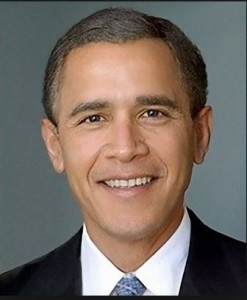Dear Commons Community,
Andrew Hacker, emeritus professor of political science at Queens College, City University of New York, and Claudia Dreifus, adjunct professor at Columbia University’s School of International and Public Affairs, have an opinion piece in today’s New York Times on the new Common Core curriculum that has been implemented in most of the states in our country. They cover a lot of ground and try to be balanced in their examination of what is probably the most significant change ever in American K-12 curriculum and assessment. They start their review:
“These students, in grades 3 through 8, are taking part in what may be the most far-reaching experiment in American educational history. By the 2014-15 academic year, public schools in 45 states and the District of Columbia will administer Common Core tests to students of all ages. (Alaska, Nebraska, Texas and Virginia have so far held out; Minnesota will use only the Common Core English test.) Many Catholic schools have also decided to implement the Common Core standards; most private, nonreligious schools have concluded that the program isn’t for them.
Many of these “assessments,” as they are called, will be more rigorous than any in the past. Whether the Common Core is called a curriculum or not, there’s little doubt that teachers will feel pressured to gear much of their instruction to this annual regimen. In the coming years, test results are likely to affect decisions about grade promotion for students, teachers’ job status and school viability.
It is the uniformity of the exams and the skills ostensibly linked to them that appeal to the Core’s supporters, like Education Secretary Arne Duncan and Bill and Melinda Gates. They believe that tougher standards, and eventually higher standardized test scores, will make America more competitive in the global brain race. “If we’ve encouraged anything from Washington, it’s for states to set a high bar for what students should know to be able to do to compete in today’s global economy,” Mr. Duncan wrote to us in an e-mail.
But will national, ramped-up standards produce more successful students? Or will they result in unintended consequences for our educational system?
By definition, America has never had a national education policy; this has indeed contributed to our country’s ambivalence on the subject. As it stands, the Common Core is currently getting hit mainly from the right. Tea Party-like groups have been gaining traction in opposition to the program, arguing that it is another intrusion into the lives of ordinary Americans by a faceless elite. While we don’t often agree with the Tea Party, we’ve concluded that there’s more than a grain of truth to their concerns…
In sum, the Common Core takes as its model schools from which most students go on to selective colleges. Is this really a level playing field? Or has the game been so prearranged that many, if not most, of the players will fail? “
Hacker and Dreifus conclude by referencing education and media people of all persuasions:
“Debate is now stirring within partisan circles. Glenn Beck sees the Common Core as “leftist indoctrination.” The Republican National Committee calls it “an inappropriate overreach to standardize and control the education of our children.” Republican governors and legislators in Indiana, Kansas, Georgia and several other states are talking about reconsidering their participation. Yet conservative scholars at the Manhattan and Fordham institutes laud it as promising “a far more rigorous, content-rich, cohesive K-12 education.” Some corporate C.E.O.’s favor it because they say it will upgrade the work force. Mr. Duncan is one of the lone liberal voices in support of the program. Randi Weingarten, president of the American Federation of Teachers, supports the plan, which she calls “revolutionary.” That said, she has called for a moratorium on judging teachers and schools by the first round of assessments, which she fears are sometimes being implemented hastily and without needed support. For Diane Ravitch, a historian of education and former assistant education secretary, the program is predicated on “the idea that you can’t trust teachers.” If we want our children taught from standardized scripts, she told us, let’s say so and accept the consequences.
For our part, we’re tired of seeing teachers cast as scapegoats, of all the carping over unions and tenure. It is time teachers are as revered in society as doctors or scientists, and allowed to work professionally without being bound by reams of rules.
Still, there’s an upside to the Common Core’s arrival. As the public better appreciates its sweep, there is likely to be much discussion about schools and what we want them to do. Ideally, this will involve a reconsideration of the contours of knowledge and the question of how we can become a better-educated nation.”
The issue of the Common Core and its assessment requirements will dominate much of the education policy debates over the next several years. Right now it has essentially been fostered upon many of the states by Arne Duncan and the U.S. Department of Education. There has been no real debate about it in the Congress. At some point, when (if ever?) bipartisanship returns to Washington, D.C., the Common Core will receive an extensive hearing and evaluation.
Tony



